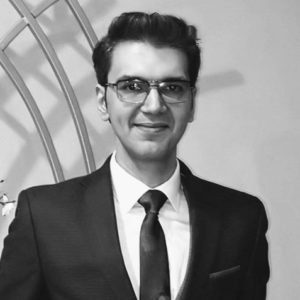Dominic Dudley posed questions in the “Forbes” magazine about safety standards for the UAE’s Barakah nuclear power plant. Commenting on a recent speech of Sultan bin Ahmed Sultan Al Jaber, Minister of State in the Emirates government and President of the Abu Dhabi National Oil Company (ADNOC), within the activities of the Abu Dhabi Sustainability Week, about the nuclear power plant that will start supplying energy for the electrical grid for the first time later this year.
The Emirates Nuclear Energy Corporation (ENEC) is building four identical nuclear reactors, type APR1400, with a capacity of 1400 MW each, at the Barakah site in the Al Dhafra region of Abu Dhabi Emirate. And when it starts operating, it will produce 5.6 GW of electricity.

And where Dudley believes that building nuclear reactors may cause controversy in different parts of the world, he thinks it is more controversial in the Gulf region, where it lies at the heart of the geopolitical storm with Iran. Moreover, Al-Jaber’s assurances about the safety of nuclear energy in the UAE did not convince many!
Dr. Paul Dorfman, founder of the Nuclear Consulting Group (ncg), raised a number of questions about the safety, security and environmental effects of the UAE’s nuclear power plant, that is being built in cooperation with the Korean Electric Power Company (KEPCO), and its subsidiary the Korean Hydro and Atomic Energy Company (KHNP).
A report issued by the Nuclear Consulting Group in December entitled: “Gulf Nuclear Ambition: New Reactors in United Arab Emirates”, (Click here to download a full copy of the report), referred to cracks found in the containment buildings in the four reactors, where work was suspended until the faults were fixed. The Korean company responsible for building the reactors was also exposed to a scandal over the use of counterfeit components in the Korean reactors, and there has been a dispute between the Koreans and the ENEC over the replacement of workers.
Dorfman pointed out that the design of the reactor used in Barakah does not have additional reactor safety features such as additional reactor containment feature or a core-catcher, that provides protection in cases of reactor meltdown. Both of which are “design features normally expected to be present in all nuclear reactors in Europe!”.
These design features, help limit the release of radiation in the event of an accident or a deliberate attack on the nuclear plant. And the latter, cannot be excluded, especially since the Yemeni Houthi rebels claimed in the past that they targeted the Barakah site with a missile, while the Saudi oil installations were attacked last year. If the reactor is attacked or undergoes an accident, it will leave major repercussions on the local population.
On its part, UAE asserts that its nuclear plant is safe, without responding has to the questions asked by the author to comment on his article.
Dudley also pointed out that the Korean company KEPCO was able to contract only with the UAE, and “this is not surprising in light of the controversy that has been raised around it.”
In this context, Dorfman said: “The UAE contract remains the one and only export order for South Korea, as KEPCO and the KHNP were unable to replicate the contract with Abu Dhabi elsewhere, despite initiatives from Lithuania, Turkey, Vietnam and the UK”.
Original Article HERE



